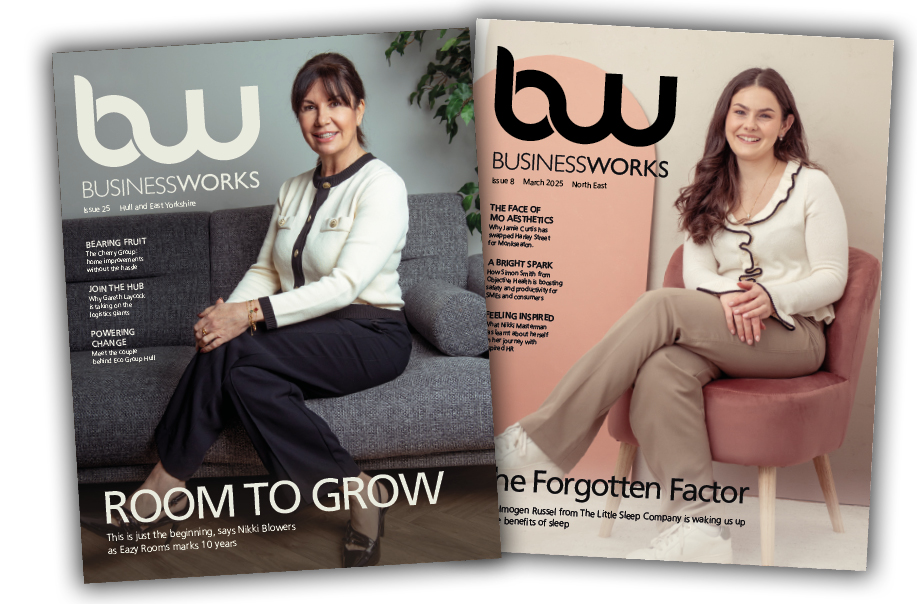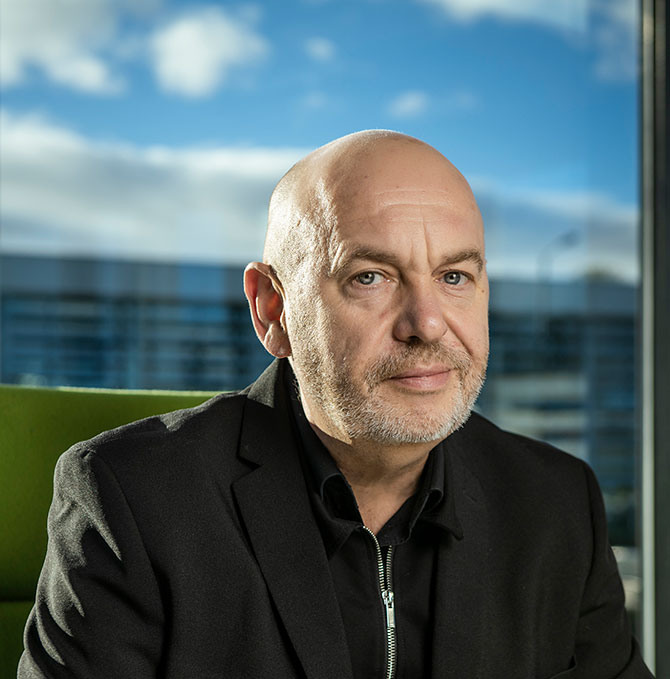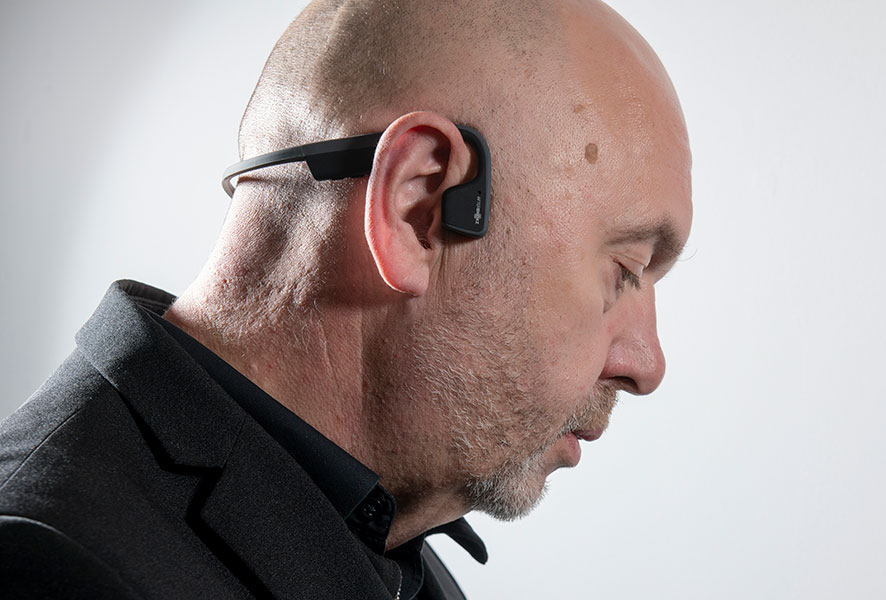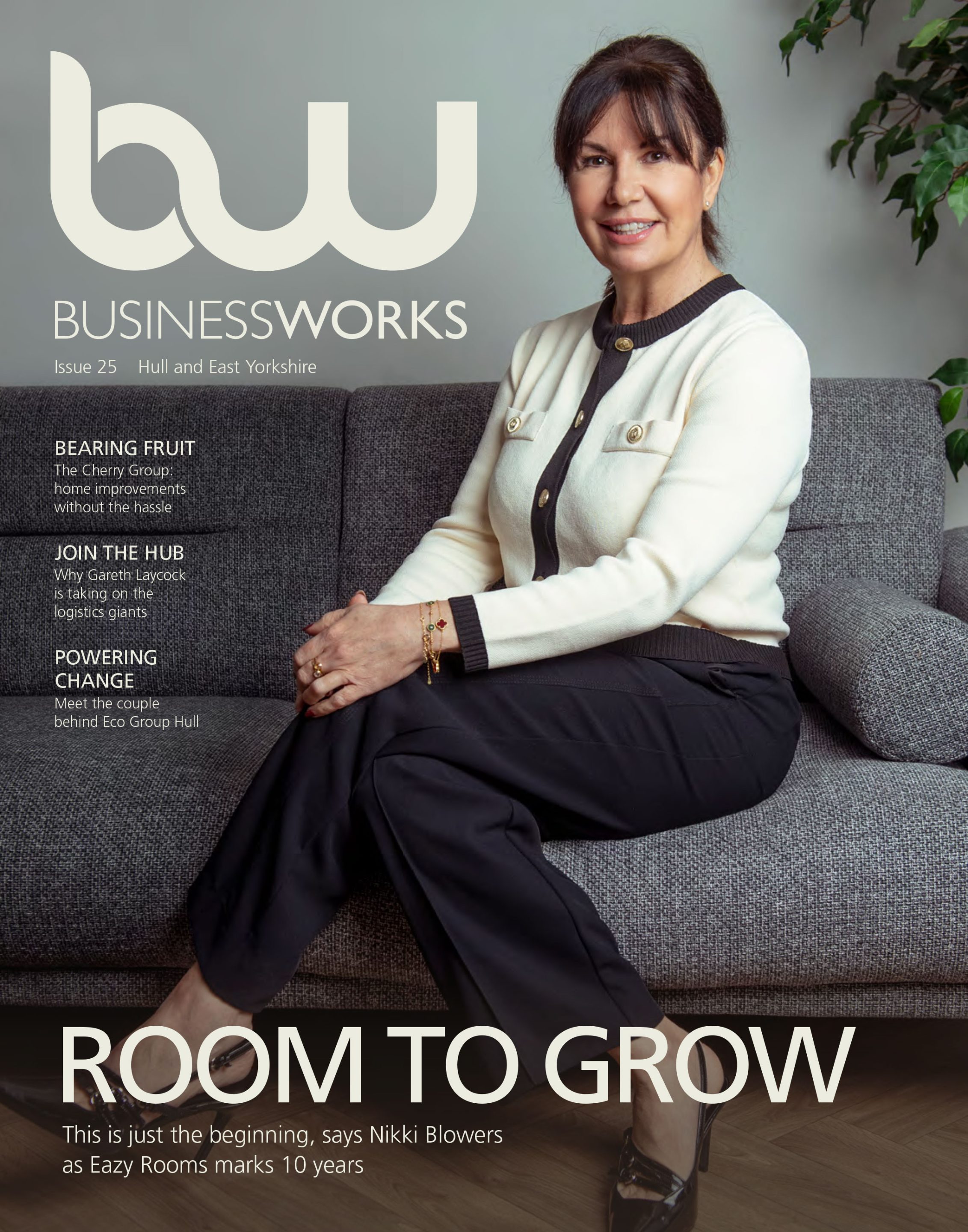Sam Hawcroft listens to the sound of science.
I learned piano as a child, and often, when I had a headache or felt under the weather, I’d play my favourite Beatles songs and the pain would ebb away.
Little did I know then that self-medicating with music – the power of which has been recognised for centuries – would turn out to be strongly backed by science and that, now, artificial intelligence is being used to help doctors treat all manner of conditions.
Gary Jones’s own musical journey began when his uncle bought him a plastic guitar for his 13th birthday in the mid-1970s. Inspired by his musical family, he taught himself how to play, started a school band and began putting gigs and events on in his local area.
He later went down to London to manage a band, and so began a 30-year career in the music business that saw him run a label in the US and contribute to numerous B2B and consumer titles including Reader’s Digest, Music Business International, Moneywise and the Times Educational Supplement. He also launched his own business publishing specialist photography books and magazines.
Towards the late 1990s, he began to focus on the creation of content management systems, co-founding an e-commerce IT website, developing SMS products and providing mobile and wireless consultancy services for multinational clients.
In 2013, he was offered the position of senior partner manager at Omnifone, a global B2B cloud music platform provider, running Sony’s Music Unlimited streaming service across 19 territories. It was there that he met Professor Mark Sandler, head of digital music at Queen Mary University of London, where researchers had invented algorithms that, when exposed to a piece of music, extract its digital DNA, such as its tempo, timbre or key.
“Confucius, Einstein and Martin Luther King have all extolled the benefits of music to health, and the science is solid,” says Gary. “There have been 25,000 papers published during 40 years of research. So, it struck me if I could combine that with my knowledge of music and licensing, and my technical experience in terms of building content management and content delivery platforms, I might be able to create a service that mimics the human brain’s response to music.”
Back then the science was still “embryonic”, says Gary, so he spent the next few years building a library and reading thousands and thousands of research documents, to the point where – although he stresses that he’s not a doctor – he can hold a decent conversation on matters of the human brain. But the real catalyst for taking the plunge and launching MediMusic was leaving the capital and heading up north.
“Two years ago, I moved to Yorkshire through a variety of reasons,” he says. “I was coming up here more regularly with my ex, whose mother was ill and died recently of dementia. And I just fell in love with Yorkshire. Even though I’d been in London for 36 years, I’d never really felt like it was my home. Yorkshire felt like my spiritual home. So I decided to cut ties in London and thought, let’s do something the way I want to do it.”
Gary acknowledges that, in some ways, it would have been easier to launch in the capital because of all the contacts he had there – and a major challenge of moving up north was the fact he “literally didn’t know anybody, apart from my elderly in-laws”.
However, unlike in the capital, people here tend to be far more welcoming and receptive, he adds. “In London, you can lock on a door 20 times before someone even opens it up. We wouldn’t be at the position we’re in after just two years, had we been in London. Most of the people who are involved with the business have ties to Yorkshire, and all the service providers I use are in Yorkshire, where possible. And in London it’s kind of one big melting pot, but up here you’ve got Leeds, Manchester, Liverpool, Sheffield, York, Hull, which all have their own kind of micro-economies and they’re all within about an hour of each other.”
Establishing MediMusic at C4DI in Hull was another driver – many people who have featured in these pages have spoken about how the tech hub is a close-knit community where there are connections, help and support down every corridor.
“We were introduced by Barclays Eagle Labs, which is based at C4DI, to the innovation department at Lancashire Teaching Hospitals NHS Foundation Trust, and that’s where it all came from – that was the initial big contact we got,” says Gary. “It led to the evaluation and validation process of our software within its dementia ward.” Indeed, initial clinical trials there found that the use of MediMusic reduced dementia patients’ heart rate by up to 22% during the pandemic.
Did Gary find any barriers to the perception of music as medication? Is there a danger that it is seen as quackery and lumped in with therapies such as homeopathy or reiki, which the NHS has recently been criticised for endorsing?
“One of the challenges was that people perceive music just as art,” Gary acknowledges. “But in fact, it’s a combination of six sciences – maths and physics, without which it wouldn’t exist – as well as neurology, sociology, psychology and physiology. So it was an education process in terms of the immediate contacts that the business deals with, and getting them to understand that.”
So, here’s the science bit, then. The software uses algorithms to automatically create Spotify playlists based on a range of academic data on how people consume music – such as age, gender, nationality, response to major events, etc – that prompt a positive physiological and emotional response. By using an optional heart rate monitor, MediMusic’s trademarked Digital Drip analyses the listener’s response. If it doesn’t respond in the way the software expects it to, it will swap out tracks at a faster or slower rate, and all of this feeds into the machine learning process.
“It also provides KPIs to healthcare clinicians,” says Gary, “so it shows how much money they’re saving on drugs. It shows the patient benefit – in the medical world, they’re known as PROMs (patient reported outcome measures) – and that refines the digital fingerprint too.”
Perhaps surprisingly, procurement challenges within the NHS have become easier post-Covid, says Gary. “They’re a lot more open and they’re making some amazing changes in a very short space of time. I was part of the steering group for one aspect of the NHS in terms of funding trials and projects. They listened to what everybody had to say, took it away, revised it, and within three or four months – which is short for the NHS – came back with a solution. It’s a lot more dynamic, I think, because a lot of the people at management level are younger. They have devices, they understand the internet, so that adoption process is almost part of that digital health culture that they’ve been living. You’d be amazed by how many medical professionals are musicians, too.”
Gary also credits the “absolute genius” of Larkin PR’s David Prescott, whom we profiled in the autumn issue of BW. “He’s brilliant. I can’t extol his virtues enough. He’s been fundamental in getting people’s awareness of us accelerated. And he’s indicative of a lot of the people at C4DI – there’s a massive pool of talent there.”
MediMusic’s recent growth means that it has expanded to larger offices at Ergo, in Hessle’s Bridgehead Business Park. There are now nearly 30 people involved with the business overall, but, as Gary points out, one of the biggest burdens on companies is employment, so he likes to “keep it lean”. He adds: “We’ve got a couple of part-time staff – a research assistant and someone doing the social media. Because this is evolving so quickly, I’ve been really careful about hiring. But there are defined roles that I will be hiring for soon, and you’ve got to hire the right people at the right time. Sometimes that can be hard, but, you know, this isn’t my first rodeo.”
Having won a grant of £81,000 from the SparkFund (a University of Hull scheme backed by the EU), Gary is planning scientific trials for the next two years, with a team working on the music information retrieval algorithm that splits music into various stems, such as bass, drums, vocals and key, and processes the relationship between them and their influence on the brain. “It’s research that nobody else has done,” says Gary. “Academia just couldn’t do the machine learning that the power of a computer can do quite quickly across a very broad set. But we’ve had fantastic response and support in this area. It is all about the science, and it always will be – it has to be evidence-based.”
In September, MediMusic landed a further £1.2m in funding, including £200,000 from Finance Yorkshire, as well as backing from the University of Hull, fellow C4DI business Sauce and private investors. The following month, it was announced that MediMusic had become the 19th startup to join Abbey Road Studios’ music tech incubation programme, Abbey Road Red.
This will help the company launch its next set of features, including new bio-markers alongside heart rate, and tackling the new area of pain reduction with music. “We’re very pleased to be part of that,” says Gary, “especially because they bent the rules a bit, because normally you have to be seed-funded and at least heading towards revenue. When they invited us, we were neither, but we are now, and it means Universal Music Group now owns 2% of us. That will obviously improve our kudos.”
Then came two major awards nominations – start-up of the year in both the HullLive Business Awards and the Yorkshire Post’s Excellence in Business Awards. What with this, and Gary’s plans to launch in the US, these are incredibly exciting times.
What medicine would Gary dispense for himself?
“My taste is eclectic – classical, country, rock, folk, opera,” he says. “With the possible exception of David Bowie, I’ve never really been an ‘artist’ fan – It’s always been about songs for me.”
He adds that his “greatest ambition” is “to be on my deathbed, in 20, 30 years’ time, maybe longer – who knows what’s going to happen in science? – reflecting on my life and actually having achieved it, that music is dispensed as medicine.” In just two years since he launched MediMusic, he has made huge leaps towards achieving this.
“There’s still lots of work to do – but that’s the exciting part.”





